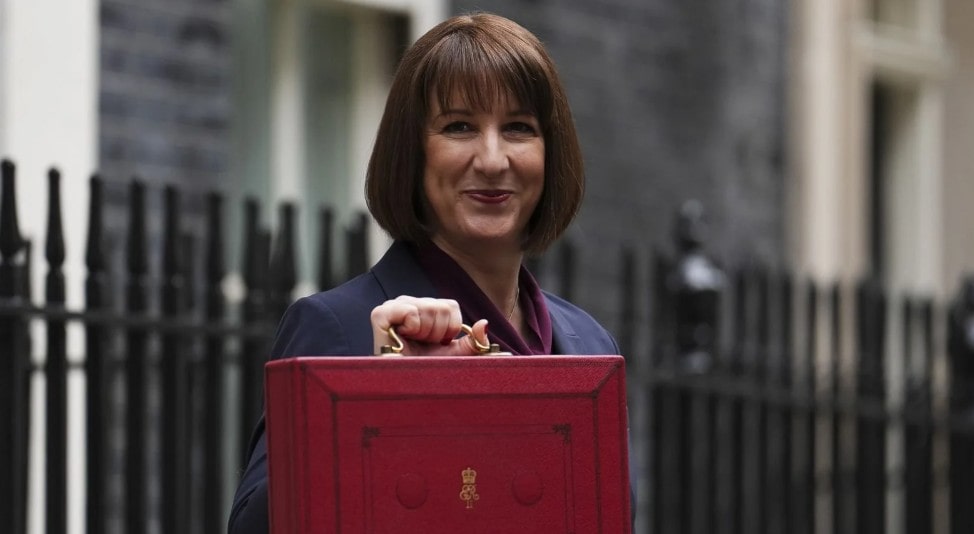Shoppers across the UK are feeling the pinch once more, as a surge in grocery essentials like eggs and butter pushes food inflation higher. Latest figures show food prices are climbing at their fastest rate in a year and a half, adding fresh pressure to already stretched household budgets.
According to the British Retail Consortium (BRC), food inflation jumped to 4.2% in August, up from 4% in July, marking the highest level since February 2024.
“Staples such as butter and eggs saw significant increases due to high demand, tightening supply, and increased labour costs,” said Helen Dickinson, Chief Executive of the BRC.
Even chocolate hasn’t escaped the crunch, with global cocoa prices surging due to poor harvests, making your favourite treat more expensive.
With eggs, butter and even chocolate rising sharply in cost, millions of families are now being forced to rethink how they shop, cook and budget. The once-simple trip to the supermarket is becoming a weekly stressor for many across the UK.
While overall shop price inflation crept up to 0.9% in August, prices for non-food items actually fell by 0.8%. Yet retailers say they’re under growing financial pressure themselves.
“Retailers are doing everything they can to limit price rises for households,” Dickinson explained, but warned that the industry faces an extra £7bn in costs following last year’s Autumn Budget.
These costs stem from increased national insurance contributions and the minimum wage hike introduced by Chancellor Rachel Reeves.

That concern was echoed last week by over 60 major retail bosses including Tesco, Sainsbury’s and Boots who issued a warning to Reeves. In a coordinated letter via the BRC, they cautioned that any further tax hikes could undercut government pledges to raise living standards.
They also predicted food inflation could rise to 6% later this year.
Mike Watkins, Head of Retailer and Business Insight at NIQ, pointed to a mix of factors driving prices higher. These include rising global supply chain costs, seasonal fluctuations tied to the weather, and the end of supermarket promotions linked to summer sporting events.
“As shoppers return from their summer holidays, many may need to reassess household budgets in response to rising household bills,” Watkins added.
Fresh figures from the Office for National Statistics (ONS) show inflation ticked up to 3.8% in July, up from 3.6% in June. Food and travel costs were key drivers.
The consumer prices index has now remained above the Bank of England’s 2% target for ten straight months.
In July:
- Food and non-alcoholic drinks rose 4.9% year-on-year
- That’s up from 4.5% in June
- The biggest price hikes were seen in beef, coffee, chocolate and orange juice
Severe droughts in Spain, Italy and Portugal nations that supply much of the UK’s fruit and vegetables have also disrupted harvests, pushing up prices when they would usually fall.
As if costlier groceries weren’t enough, households are bracing for a new blow. Ofgem, the energy regulator for Great Britain, is expected to announce a 1% rise in the energy price cap this week.
Forecasts by Cornwall Insight suggest the cap will rise to £1,737 a year for an average dual-fuel household, up from £1,720. The increase, if confirmed, will take effect in October and last through the end of the year.
Fuel poverty campaigners have reacted sharply to the looming energy hike.
“We are now approaching the fifth winter of the energy bills crisis, and the time for tinkering with the price cap is over,” said Simon Francis, spokesperson for the End Fuel Poverty Coalition.
The group estimates that 12.1 million UK households are already struggling to pay their energy bills.
Francis warned that the average household is now paying 67% more for energy compared to the winter of 2020-21, and insisted families cannot absorb further increases.
As the country heads into colder months with rising food and energy bills, the pressure on households is mounting. The question is no longer whether costs are going up—it’s how much more families can take.






